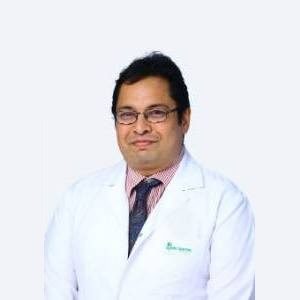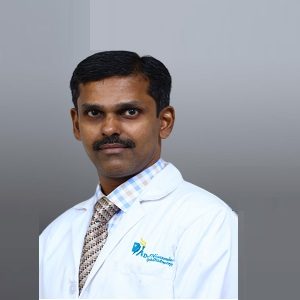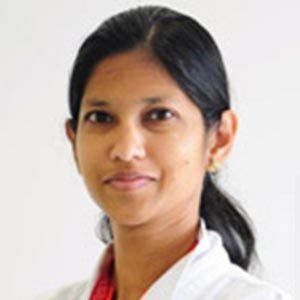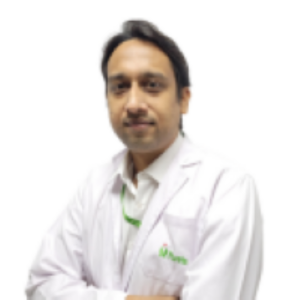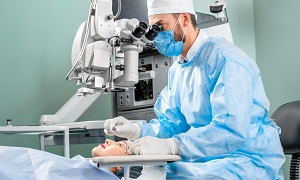Best Doctors in India for LASIK
- Opthalmologist, Chennai, India
- Over 26 years’ experience
- Apollo Hospitals Greams Road, Apollo Spectra Hospital Chennai-Alwarpet
Profile Highlights:
- Dr. Pratik Ranjan Sen is a specialist in Ophthalmology and serves as an Ophthalmologist – Consultant at Apollo Hospitals, Chennai.
- He has performed over 8000 Retinal detachment and other Vitreo retinal disorder surgeries.
- Dr. Pratik Ranjan Sen considers his profession a mission and is dedicated to his work. Due to this, he has gained enough trust and recommendations from his patients.
- Ophthalmologist, Chennai, India
- Over 21 years’ experience
- Apollo Hospitals Greams Road
Profile Highlights:
- Dr. Viswanathan P is one of the best eye surgeons in India having an overall experience of 21 years.
- He is a qualified doctor from the Tamil Nadu University of India and possesses a degree in MBBS and MS.
- One can visit him for routine eye check-ups or retina examinations and services like eye surgery, retina surgery, cataract surgery, etc.
- Ophthalmologist, Gurugram, India
- Over 13 years’ experience
- Medanta-The Medicity, Gurgaon
Profile Highlights:
- Dr. Svati Bansal is an esteemed consultant and practitioner of ophthalmology in Gurugram.
- Her specialty lies in orbit and oculoplasty, ocular oncology, ocular trauma, and neuro-ophthalmology.
- She has fellowships in neuro-ophthalmology and ocular motility, oculoplasty, and facial aesthetics, and ocular oculoplastic and ocular oncology.
- Top Ophthalmologist | Fortis Hospital, Mulund, Mumbai
- 10+ Years Experience
- Fortis Hospital Mulund Mumbai
Profile Highlights:
- Dr. Amit Jain is an experienced Ophthalmologist based in Mumbai, who specializes in treating patients with eye issues, particularly those related to Vitreo-Retina, Uvea, and ROP.
- He is an expert in employing the most recent techniques in eye surgery to address conditions like diabetes that damage the eyes and correct issues with the back of the eye.
- With more than 10 years of expertise, Dr. Amit Jain has made a name for himself as a leading expert in the field of eye care.
- He completed his medical training in Ophthalmology at the Dr. Rajendra Prasad Centre for Ophthalmic Sciences at AIIMS in New Delhi, a renowned institute for eye treatment. Later, he went on to pursue long term clinical fellowship in Vitreoretina at Sanskara Netralaya in Kolkata and Chennai.
- He started his professional career at Shri Ganapati Netralaya in Jalna, Maharashtra as an Associate Consultant in the department of Vitreoretina and Uvea services. And now, he serves as a Consultant in the Department of Ophthalmology at Fortis Hospital, Mulund.
- Apart from being a medical practitioner, Dr. Jain also enjoys imparting information and knowledge among young minds. He mentors aspiring medical professionals who wish to focus on eye care.
- Several of his works on the topic of eyes have been published in prestigious medical publications. Additionally, he often speaks at medical conferences where eye specialists from throughout the nation get together to exchange knowledge.
Best Hospitals in India for LASIK
Hospital Highlights:
- Apollo Hospitals is a private healthcare group in India, with its headquarters based in Chennai. Established in 1983 by Dr. Prathap C. Reddy, the group offers a wide range of medical treatments and services across various specialties.
- It is renowned for emphasizing innovation and utilizing cutting-edge medical technologies into patient treatment.
- Known as India’s first corporate hospital, Apollo Hospitals is often credited for pioneering the private healthcare revolution in the country.
- With clinics and hospitals located all throughout India, Apollo Hospitals is a nationwide healthcare organization. Its presence can also be found in foreign countries.
- Preventive health examinations, medical and surgical treatment, and diagnostic centres are just a few of the services that the Apollo group provides.
- The group has several centres of expertise, including Cardiac Sciences, Neurosciences, Orthopedics, Emergency Care, Cancer Care, and Organ Transplantation.
- City: Chennai, India
Hospital Highlights:
- RIMC is a multi-specialty hospital in a sprawling area of 36 acres located in Chromepet, Chennai, Tamil Nadu, India.
- The facility has 450 beds including 130 critical care beds, 9 operating rooms, modern reference laboratories and radiology services, and is conveniently located near road, rail and air transportation.
- RIMC is led and managed by world-renowned physicians committed to healthcare.
- RIMC offers the broadest range of clinical care, education, and research. The hospital offers state-of-the-art technology and modern treatment facilities designed to provide health care at an affordable cost.
- Rela Institute is driven by patient needs, comfort and confidence.
- City: New Delhi, India
Hospital Highlights:
- Fortis Hospital in Shalimar Bagh is a multi-super specialty hospital that strives to provide world-class patient care by leaving no stone unturned.
- Fortis, Shalimar Bagh, with 262 beds and a 7.34-acre footprint, provides the best level of medical care through its team of doctors, nurses, technicians, and management professionals.
- City: Bengaluru, India
Hospital Highlights:
- Established in 2007, the Apollo Hospitals Bangalore is a 300-bed multispecialty hospital situated in Bannerghatta Road, Bangalore.
- Equipped with the state-of-the-art technology, it is a leading hospital dedicated to providing healthcare needs to patients with compassion and expertise.
- It is the first hospital to have completed the highest number of Robot Assisted Heart Surgeries in India.
- Over the years, it has successfully conducted some of the rarest medical procedures such as spinal angiolipoma excision, autologous chondrocyte implantations, and tibial tuberosity shift with MPSL reconstruction.
- The Apollo Hospitals Bangalore has the reputation of performing the greatest series of airway stents in the country.
- Additionally, the hospital is known for providing comprehensive treatment in specialties such as gastroenterology, urology, gynecology, oncology, colorectal surgery, etc.
- The “The Minimal Access Surgery Centre” (MASC), one of Apollo Hospitals, Bangalore’s premier Centres of Excellence, is devoted to the use of minimally invasive surgical procedures.
- In 2013, THE WEEK-A C Nielsen, Best Hospital Survey ranked Apollo Hospitals Bangalore as the 2nd best multi-speciality hospital in Bangalore.
- City: Mumbai, India
Hospital Highlights:
- Gleneagles Global Hospital The 450-bed facility comprises of 17-stories, housing state-of-the-art infrastructure, and advanced medical care facilities.
- The hospital offers end-to-end clinical, surgical, and diagnostic services. It is equipped with a team of eminent medical professionals aided by qualified nurses and medical staff
- The Hospital offers advanced Endoscopic procedures, Hepatobiliary and Liver Surgeries, Surgical and Medical Gastroenterology, Bariatric Surgery, and Robotic surgery.
- The hospital is a center of excellence for Orthopedics, Joint Replacement, Knee Replacement, and Hip Replacement surgery.
- City: Hyderabad, India
Hospital Highlights:
- CARE Hospitals were established in the year 2000, by CARE Group.
- The multispecialty hospital has 435 beds, including 120 critical care beds, with an annual inflow of 180000 outpatients and 16,000 in-patients.
- The hospital provides specialty medical services in Cardiology, Cardiothoracic Surgery, Pediatric Cardiology, Pediatric Cardiothoracic Surgery, Neurology, Neurosurgery, Nephrology, and Urology.
- The hospital has the first dual source, 128 slice CT scanner (for high precision cardiac imaging) – the first of its kind in south India.
- The hospital offers a wide range of accommodation facilities for the convenience of its varied patient base, ranging from general wards to super deluxe rooms.
- City: Mumbai, India
Hospital Highlights:
- Fortis Hospital in Mulund is a 315-bed multi-speciality tertiary care hospital with five JCI accreditations that offers a wide variety of diagnostic and treatment services. The Fortis Hospital in Mulund delivers patient-centred treatment with cutting-edge technology, highly skilled and experienced surgeons, and paramedical staff.
- This institution houses Maharashtra’s largest multi-organ transplant centre. It is also the first heart transplant centre in western India to conduct 100 or more consecutive heart transplants in under four years. It is the only hospital in the city to have multi-organ transplants and has handled the youngest patient for angioplasty. Fortis Hospital Mulund now boasts the first advanced surgical robot in central Mumbai.
- Cardiology and heart surgery, urology, nephrology, neurosciences, orthopaedics, digestive care, emergency and critical care, and maternity care are among the services provided by the hospital.
- City: New Delhi, India
Hospital Highlights:
- Manipal Hospitals, Dwarka, is a super-specialty hospital in Dwarka, New Delhi, which is a part of Manipal Hospitals Group.
- The hospital aims to provide the best treatment on par with international standards at a fraction of the cost.
- Equipped with 380 beds, the hospital is also one of the new age hospitals which are equipped fully with state-of-the-art infrastructure, cutting-edge technology as well as the latest and advanced clinical practices. The hospital also has 13 modular Operation theatres with 118 beds which are solely meant for critical care.
- The hospital comprises internationally acclaimed doctors and highly professional and experienced hospital and medical staff who are able to provide preventive, therapeutic, and diagnostic services all under one roof.
- City: Chennai, India
Hospital Highlights:
- Located in Chennai, India, MGM Healthcare is a top multispecialty hospital that provides all medical services under one roof.
- Since its founding in 2019, MGM Healthcare has quickly become a leading national referral centre, creating several innovative flagship initiatives.
- MGM Healthcare combines next-generation medical and digital technologies to provide better patient results.
- With 12 centres of excellence, more than 400 inpatient beds, 100 intensive care unit beds, and 24/7 emergency care, MGM Healthcare leaves no chance in redefining the patient experience in Chennai.
- MGM Healthcare boasts 250+ expert doctors across 30+ departments, including Cardiology, Pulmonology, Neurology, Obstetrics & Gynaecology, and more.
- They house 12 specialized Centres of Excellence, including Neurosciences, Orthopaedics, and Multi-Organ Transplantation.
- Their team of doctors, nurses, and paramedics works together to give every patient individualized treatment.
Hospital Highlights:
- Lilavati Hospital & Research Centre is India’s premier multi-speciality tertiary care hospital and has been recognised as a global medical excellence centre.
- Lilavati Hospital & Research Centre has built an unrivalled level of trust with its patients over the years, thanks to a solid foundation that comprises cutting-edge facilities, the best medical competence, research, education, and charity endeavours.
- The hospital is quite proud of the fact that it now serves patients from all kinds of backgrounds, not just from the United States but from all around the world.
- The hospital has a total of 323 beds, one of the largest Intensive Care Units (ICUs), 12 Operation Theatres with modern amenities, over 300 consultants, and almost 1,800 personnel.
LASIK
LASIK (Laser-assisted in situ keratomileusis) is the most commonly performed laser eye surgery used to treat eye disorders, viz. myopia (nearsightedness), hyperopia (farsightedness) and astigmatism. Like other types of refractive surgeries, this procedure can reshape the front surface (cornea) of the eye to enable light entering the eye to focus on the retina without the need for glasses or contact lenses.
LASIK is a pain-free procedure and it requires only around 15 minutes treating both the eyes. One’s vision can improve immediately and can stabilize in as little as 24 hours. During this surgery, a special type of laser is used to precisely change the shape of the dome-shaped clear tissue in the cornea.
Purpose
The purpose of LASIK is to treat one of these vision problems-
- Myopia (Nearsightedness): When a person’s eyeball is slightly longer than normal or when the cornea curves too sharply, light rays focus in front of the retina and end up blurring distant vision. In this condition you can see close objects quite clearly but those that are far away can appear blurry.
- Farsightedness (Hyperopia): When your eyeball is shorter than average or your cornea is too flat, light focuses behind the retina instead of on it and this ends up making near vision and sometimes even distant vision quite blurry.
- Astigmatism: When the cornea curves or flattens unevenly, it results in a disorder called astigmatism which can disrupt the focus of near and distant objects.
Preparation
Before LASIK you would need to meet with a coordinator or eye surgeon who can talk to you regarding what to expect during and after the procedure. You will need to provide your medical history and then undergo a full eye exam. Some tests to measure the thickness of your eye, refraction as well as eye pressure will also be included.
If you are wearing contact lenses, it is important not to wear them for at least three weeks until you have had your evaluation. LASIK surgery is considered an elective surgery which is why most insurance companies will be unwilling to cover its cost. You might need to pay the expenses out of your pocket.
It is also important that you don’t use eye makeup, cream, perfumes or lotions on the day before and after your surgery. You might also receive instructions from your doctor to clear your eyelashes daily or more in the days leading up to your surgery in order to remove the debris as well as minimize the risk of infection.
During the surgery
LASIK surgery usually won’t take longer than 30 minutes. During this procedure, you are supposed to lie on your back in a reclining chair. You might also be given medicine which will provide relaxation.
After some numbing eye drops are placed on your eye, your doctors will use an instrument to hold the eyelids open. Then a suction ring will be placed on your eye, before cutting the corneal flap. This might cause a feeling of pressure and your vision might dim a bit.
Your eye surgeon will next use a small blade or cutting laser to cut a small hinged flap away from the front of your eye. Folding back this flap can allow your surgeon to access the part of your cornea which needs reshaping.
Your surgeon will then reshape parts of your cornea using a programmed laser. You will be asked to put your focus on a point of light during the procedure. This helps keep your eye fixed, while the laser can reshape the cornea.
If you require LASIK surgery in both the eyes, generally your surgeon will conduct the procedure on the same day.
After the surgery
Your eyes will be dry and your doctor will give you prescription eye drops in order to prevent infection and inflammation, as well as drops to help keep the eyes moist. You might also experience a slight burning feeling or blurry vision for a brief period when are using them. Also remember not to use any kind of eye drops unless you’ve consulted your doctor about them.
Do not swim or use a hot tub for at least two weeks post-surgery. You can also consider getting a plastic shield for the protection of your eyes while you’re sleeping for a few days.
Though you will be able to see right after the surgery itself, you won’t experience a clear vision right away. It takes around two to three months after the surgery is performed and your eye can heal back to normal. Your chances for improved vision also depend on how good your vision was before your surgery.
Around 80 percent of people, who have undergone LASIK refractive surgery, haven’t required their glasses or contact lenses for the majority of their activities.
Benefits
- LASIK has been around for over 2 decades and 96 percent of patients are able to reach their vision goals within a short time.
- There is almost no pain involved in the surgery.
- No bandages or stitches are involved.
- Even if your vision changes with age, your doctor will be able to adjust it.
- After the operation, you will hardly need to use your glasses or contact lenses.
Risks
- Dry Eyes- LASIK surgery can cause a temporary decrease in the production of tears. Due to this, for around six months after the surgery, your eyes may feel unusually dry as they heal. This can cause a reduction in the quality of your vision.
- Undercorrections- If the laser ends up removing too little tissue from your eyes, the clearer vision results you were expecting will not be achieved. Undercorrections are more common among nearsighted people. If this happens, you might need to undergo another LASIK Procedure within one year to remove more tissue.
- Overcorrections- It is possible that the laser will remove too much tissue from your eye which can lead to overcorrection. Overcorrections are more difficult to fix as compared to undercorrections.
- Glare, Halos, or Double Vision- Sometime after the surgery, you can have difficulty seeing during the night time and this might last for a few days to a few weeks. You may also notice a few problems like light sensitivity, glare, halos around bright lights or even double vision.
- Flap Problems- Folding back or removing your eye’s flap from its front can lead to complications such as infection or excessive tears. This can lead to the outermost corneal tissue layer to grow abnormally underneath the flap during your healing process.
- Regression- Despite the surgery, if your vision slowly changes back to your original prescription, it is called regression. This complication is less common.
- Vision loss or changes- Even though it is rare, in some situations, loss of vision can be caused by surgical complications. Sometimes people may also not see as sharply or clearly as they did before.

